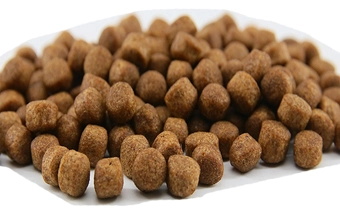EXTRUDED FISH FEED

Opis izdelka
EXTRUDED FISH FEED
Expanded feed is a fluffy and porous feed made by feeding powdered raw materials into the extruder, mixing, shearing, tempering, heating, pressurizing, sudden depressurization and expansion of the mold hole, granulation, and drying. According to the different living and feeding habits of aquaculture animals, it can be made into floating, slow sinking, and sinking expanded aquatic feed.
Types Of Extruded Feed
Aquatic Turtle Extruded Feed
The daily feeding amount should be determined according to the specification, quantity and previous feeding conditions of turtle, and according to the increase or decrease of water quality, water temp...
Aquatic White Prawn Feed
South American white prawn compound feed, which is rich in nutrition, promote growth, healthy ingredients, balanced nutrition, to meet the appetite of prawn.
Spirulina Crisp
Crispy particles has good stability in water. They're soft particles, easy for ornamental fish to swallow, add spirulina and other color raising raw materials, so that the surface of the ornamenta...
Loach Puffed Feed
According to the physiological characteristics and growth needs of different growth stages of loach, high-quality raw materials are processed by scientific formula and advanced production technology. ...
Puffed Feed For Koi Fish
The main nutrients of koi feed include protein, fat, optional carbohydrates, feed vitamins and minerals. Protein is an important component of overall koi growth and tissue repair, fat provides the int...
Fresh Water Fish Extruded Feed
Aquatic puffing feed is based on the original granular feed, optimized and improved in formula to meet the nutritional and technological needs of aquatic animals. It is extruded and matured in a highe...
Benefits Of Extruded Feed Fish
Good palatability and improved feed digestion and utilization rate:
After the expansion treatment of feed raw materials, the fragrance and palatability increase, which can stimulate animal appetite. The long chain structure of organic substances such as protein and fat gradually changes into short chain structure, which helps digestion. At the same time, it can reduce the pollution of organic substances such as ammonia nitrogen in fish feces and feces on water quality and maintain good water quality.
Save feed and reduce water pollution:
Expanded feed has good stability, is not easily soluble, and can be suspended on the water surface, making it convenient to observe the feeding situation of fish and timely understand the growth status of fish.
Improved feed hygiene quality and reduced disease risk:
After high-temperature instantaneous treatment, harmful bacteria such as Escherichia coli, mold, and Salmonella in the feed are completely killed, reducing the probability of intestinal infections in breeding animals.
How to Feed Extruded Feed?
1. Determine the correct amount of extruded feed to give to your aquatic animals based on their size and feeding habits. Consult with a veterinarian or aquatic specialist if you are unsure.
2. There are a few ways to rehydrate extruded feed. One way is to soak it in water for a few minutes until it becomes soft and pliable. Another way is to sprinkle the feed directly into the water where your aquatic animals swim, allowing them to eat it as it sinks.
3. If you are using extruded feed as a regular part of your animal's diet, it is important to offer a varied diet to ensure they receive all of the nutrients they need.
4. Be mindful of how much feed you are offering your aquatic animals. Overfeeding can lead to water quality issues, so feed only what your animals will eat within a few minutes.
5. Store extruded feed in a cool, dry place away from direct sunlight to maintain its freshness and nutritional value. Avoid using expired feed or feed that has an off smell or appearance.

